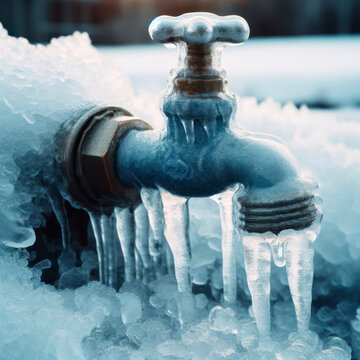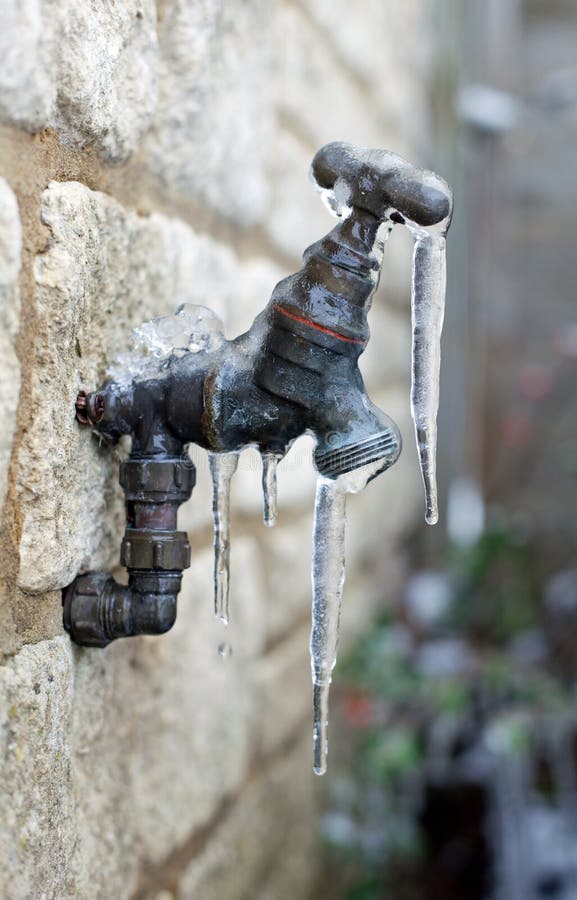Important Advice for Preventing Frozen Pipes in Cold Weather Seasons
Important Advice for Preventing Frozen Pipes in Cold Weather Seasons
Blog Article
Everyone has got their unique conception when it comes to 6 Ways to Prevent Frozen Pipes.

Cold weather can ruin your pipes, particularly by freezing pipes. Below's how to avoid it from occurring and what to do if it does.
Intro
As temperatures drop, the risk of icy pipelines boosts, possibly bring about expensive repair services and water damages. Understanding just how to avoid frozen pipes is essential for property owners in chilly climates.
Prevention Tips
Shielding at risk pipelines
Cover pipes in insulation sleeves or make use of warmth tape to secure them from freezing temperatures. Focus on pipelines in unheated or exterior locations of the home.
Heating strategies
Maintain interior rooms adequately warmed, particularly areas with pipes. Open cupboard doors to enable cozy air to flow around pipelines under sinks.
How to identify icy pipes
Search for lowered water flow from faucets, uncommon odors or sounds from pipes, and noticeable frost on subjected pipes.
Long-Term Solutions
Structural adjustments
Consider rerouting pipelines away from outside wall surfaces or unheated locations. Include added insulation to attic rooms, cellars, and crawl spaces.
Upgrading insulation
Invest in premium insulation for pipes, attic rooms, and wall surfaces. Appropriate insulation helps keep regular temperature levels and minimizes the risk of icy pipes.
Protecting Outdoor Plumbing
Yard hoses and exterior faucets
Disconnect and drain yard hose pipes prior to wintertime. Install frost-proof spigots or cover outside faucets with shielded caps.
Comprehending Frozen Pipes
What creates pipes to ice up?
Pipes ice up when revealed to temperatures listed below 32 ° F (0 ° C) for extended periods. As water inside the pipelines ices up, it increases, putting pressure on the pipeline wall surfaces and possibly causing them to burst.
Risks and damages
Icy pipelines can lead to water supply disruptions, residential property damages, and costly repair work. Ruptured pipes can flooding homes and create extensive structural damages.
Indications of Frozen Water Lines
Determining icy pipes early can avoid them from breaking.
What to Do If Your Pipelines Freeze
Immediate actions to take
If you believe frozen pipes, maintain faucets open to alleviate stress as the ice melts. Use a hairdryer or towels taken in warm water to thaw pipes slowly.
Verdict
Stopping icy pipelines requires proactive measures and quick reactions. By recognizing the reasons, indications, and safety nets, house owners can shield their pipes throughout cold weather.
Helpful Tips to Prevent Frozen Pipes this Winter
UNDERSTANDING THE BASICS: WHY PIPES FREEZE AND WHY IT’S A PROBLEM
Water freezing inside pipes is common during the winter months, but understanding why pipes freeze, and the potential problems it can cause is crucial in preventing such incidents. This section will delve into the basics of why pipes freeze and the associated problems that may arise.
THE SCIENCE BEHIND FROZEN PIPES
When water reaches freezing temperatures, it undergoes a physical transformation and solidifies into ice. This expansion of water as it freezes is the primary reason pipes can burst. As the water inside the pipe freezes, it expands, creating immense pressure on the walls. If the pressure becomes too great, the pipe can crack or rupture, leading to leaks and water damage.
FACTORS THAT CONTRIBUTE TO PIPE FREEZING
Low Temperatures: Extremely cold weather, especially below freezing, increases the risk of pipes freezing. Uninsulated or Poorly Insulated Pipes: Pipes located in unheated areas, such as basements, crawl spaces, or attics, are more prone to freezing. Insufficient insulation or lack of insulation altogether exacerbates the problem. Exterior Wall Exposure: Pipes running along exterior walls are susceptible to freezing as they encounter colder temperatures outside. Lack of Heating or Temperature Regulation: Inadequate heating or inconsistent temperature control in your home can contribute to frozen pipes. PROBLEMS CAUSED BY FROZEN PIPES
- Pipe Bursting: As mentioned earlier, the expansion of water as it freezes can cause pipes to burst, resulting in significant water damage.
- Water Damage: When pipes burst, it can lead to flooding and water damage to your property, including walls, ceilings, flooring, and personal belongings.
- Structural Damage: Prolonged exposure to water from burst pipes can compromise the structural integrity of your home, leading to costly repairs.
- Mold and Mildew Growth: Excess moisture from water damage can create a favorable environment for mold and mildew growth, posing health risks to occupants.
- Disrupted Water Supply: Frozen pipes can also result in a complete or partial loss of water supply until the issue is resolved.
WHY CERTAIN PIPES ARE MORE PRONE TO FREEZING
- Location: Pipes located in unheated or poorly insulated areas, such as basements, crawl spaces, attics, or exterior walls, are at higher risk of freezing.
- Exterior Pipes: Outdoor pipes, such as those used for irrigation or exposed plumbing, are particularly vulnerable to freezing as they are directly exposed to the elements.
- Supply Lines: Pipes that carry water from the main water supply into your home, including the main water line, are critical to protect as freezing in these lines can affect your entire plumbing system.
- Underground Pipes: Pipes buried underground, such as those connected to sprinkler systems or outdoor faucets, can be susceptible to freezing if not properly insulated.
https://busybusy.com/blog/helpful-tips-to-prevent-frozen-pipes-this-winter/

We had been made aware of that editorial about How to prepare your home plumbing for winter weather from a friend on a different web blog. Sharing is good. You never know, you may very well be helping someone out. Thanks for being here. Please come visit our site back soon.
Website Report this page